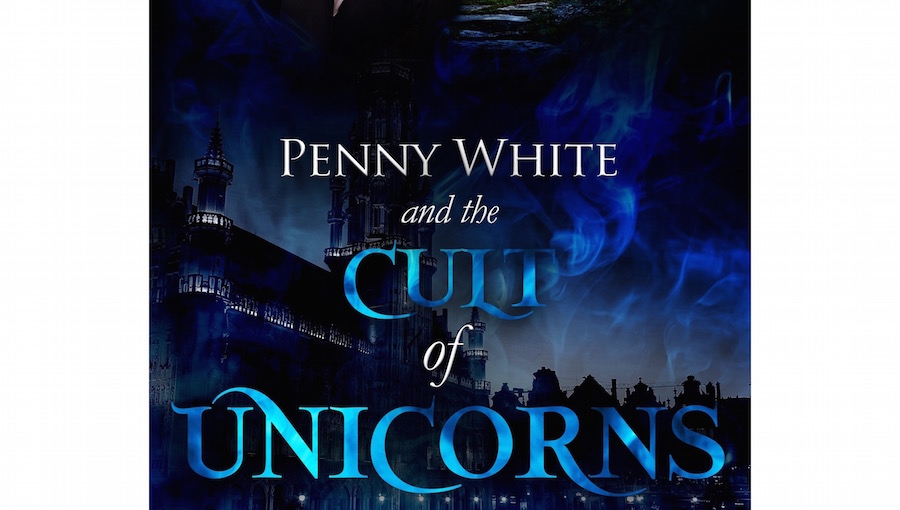Dealing with the death of Lloegyr national, Endre/Brother Dominic opened Penny White’s small parish life to something greater than imagination: an entire fantastical world populated by beings considered mythological by residents of the human world; however, the intoxicating lure of the magical creates a divide between her mundane life as a small-town vicar and the comparative excitement of her new position as a religious liaison between the two worlds. Can Penny figure out what is most important to her: the constant excitement of something new or the ties with those around her? Will she make it through yet another Christmas season with its parish demands? And, most importantly, can her human suitor ever compete with the temptation of a riveting search dragon for her heart?
If Penny White and the Temptation of Dragons focuses on creating new bonds, I think that the second novel in the series, Penny White and the Cult of Unicorns, looks at love in all its varied forms. Penny faces the challenges of managing a vicar’s love/appreciation of her parish, a sister’s love for her brother, a co-worker’s love for her partner, a guardian’s love and duty to a charge, and the ever difficult choice between two romantic suitors. Through all of the personal trials, she delves into a series of mysterious deaths that appear to have been caused by one of the arbiters of Daear, a much beloved unicorn. Even the most beautiful creatures can harbor dark secrets, and it seems that the saintly unicorns are no different.
I loved Penny’s introspection and growth in The Cult of Unicorns. Book 1 set up her relationship with Lloegyr and established several new characters, but Book 2 allowed exploration of the price of her new responsibilities. Throughout the 250 or so pages, the dragon-loving vicar fights her increasing draw to the other world over the ordinariness of being a small-town religious leader. I especially loved how author Chrys Cymri acknowledges that Christmas is an exhausting time of year for religious leaders, both because of the required rituals and the battle against commercialization of the holiday. I cannot imagine having to write and perform multiple carol and advent services only to be told that Christmas is about Santa (although Raven’s comment about Santa being the human world’s Odin and Sleipnir being the equivalent of the reindeer made me laugh with its convoluted simplicity) or fight to fill the church pews. No one likes to feel unappreciated, and Penny definitely has a dose of that in The Cult of Unicorns, even as she tries to find solace in her wavering faith.
The difference between Peter and Raven hits a high point in this book, and as a nearly middle-aged woman, I appreciated the battle between choosing excitement over stability and known chance for happiness. When I ended a longish (for me anyway) relationship a few years ago, I went through a period of “breaking bad,” where I tried things outside of my comfort zone just because I didn’t have to ask anyone’s permission or worry about hurting anyone else with my actions. As a result I sympathized with Penny’s draw to Raven’s wild, unpredictable nature over Peter’s respectful, solid affection. I also strongly agree with the ultimate message of the story: Excitement is all well and good, but sometimes we have to create our own excitement with someone who is also reliable and willing to support us back, not just want us to be a diversion.
For me, the unicorn plot of The Cult of Unicorns really was secondary to my enjoyment of the story (although the climax just sparkles!), because I’ve become attached to the characters. (Yes, I’m a big fan of books like The Secret Garden which is almost entirely a character piece). Again, this isn’t an epic fantasy story that features great battles or sweeping vistas, but I think it features something far more important: true relationships between individuals and how they develop and change over time. It’s a lovely addition to Penny White’s story, and I look forward to reading the third book in the series.
4.5 Snail Sharks Screaming, “Want Jesus,” out of 5

